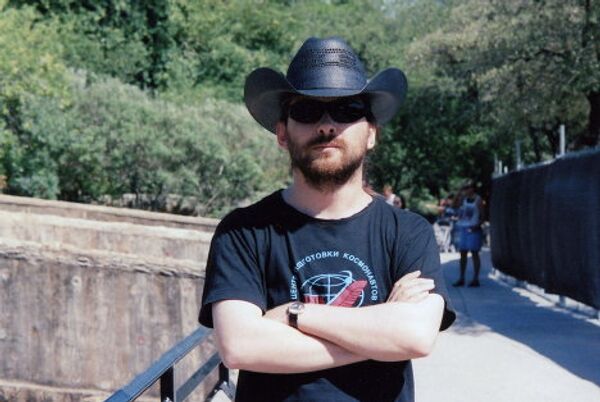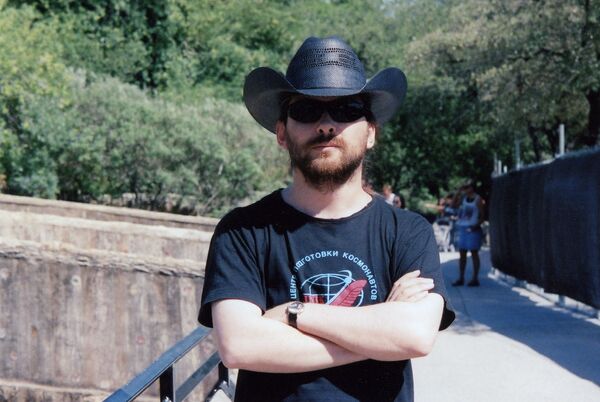The other day I read that some Russian oligarch or other had paid $95,000 to a restaurateur in New York for a bit of fungus. Well, a fool and his money, as they say.
Alright, it wasn’t just any old bit of fungus. Apparently it was a “white alba truffle” – a special fungus that is quite difficult to find. And you can eat it. Meanwhile, this bit of fungus weighed about 4lb so it was quite heavy, for a fungus. According to Nello Balan, the man who says he sold the oligarch the fungus, it was the biggest such bit of fungus in the history of fungi, or something.

So there you go: Clearly this bit of fungus was worth every penny. Except, I’m still not convinced. Then again, if I were Vladimir Potanin, the oligarch who bought the fungus, I probably wouldn’t care. I looked him up and discovered that he is Russia’s fourth richest man – worth around $14.3 billion, according to Forbes. That being the case, this purchase for him is the equivalent of me buying a Snickers bar – not particularly extravagant.
Even so, I can’t shake the feeling there are better things to spend $95,000 on. You see, I ate a bit of truffle once, I can’t tell you if it was a white one, and it tasted OK – but it didn’t do anything like cool like make laser beams shoot out of my eyes or anything. I’d eat it again if somebody else was paying, but I’d never blow my own cash on something which tastes, well, OK. Meanwhile I strongly suspect that if I were to sprinkle shavings of another, cheaper white truffle from a different part of Italy over Mr. Potanin’s food in a blind taste test, he wouldn’t be able to tell the difference.
In fact, I think the primary function of expensive fungi is to be expensive. The main pleasure in owning the priciest white truffle ever is not its flavor but rather the knowledge that you have it and nobody else, and then letting other people know about your triumph. By passing 100 grand through your alimentary canal, you confirm for yourself and (you hope) to others that you truly are an awesome master of the universe.
It reminds me of a pair of Adidas trainers a friend of mine was once given as a gift by a wealthy Russian he taught English. Apparently they cost $1,000 because some Japanese dude had drawn a picture and that picture was used as instructions when they were making them. This made them special.
Unable to buy into the illusion, my friend suffered great anxiety over his $1,000 trainers. He thought it was absurd to put $1,000 on your feet, which are sweaty, and in constant contact with the ground. So he only ever wore the shoes in bad weather, hoping that the snow and the salt would disintegrate them as quickly as possible, as if to prove what he already knew: that these $1,000 shoes were indeed just shoes.
Of course, rich people are not alone in their desire to express their exquisite uniqueness. It’s a common, perhaps universal, human desire. And while a rich man might show how special he is by wrapping his feet in money or shoveling money down his alimentary canal, an individual with less cash might decide to tattoo his face, or name his child Spacepencil, or whatever.
Of course it would be nice if everybody with buckets of money used it to help their fellow humans, but that’s just not going to happen, is it? Besides, Potanin has in fact spent buckets of money on philanthropic causes, although admittedly he did so after playing a key role in Russia’s loans-for-shares scheme of the 1990s, which enriched the few at the expense of the many. Perhaps his good deeds are motivated by guilt, or perhaps by a desire to restore his reputation. Or perhaps both. Who cares? Not me.
No, I think what I find dreariest in the whole fungus affair is Potanin’s utter lack of imagination.
If you’re going to waste millions on frivolous symbols of your awesomeness, then make it memorable. Do something crazy like Michael Jackson and buy yourself a zoo, or build yourself a wooden skyscraper like a dodgy Russian businessman I once met on the verge of the Arctic Circle.
Years ago, when I still dreamt about what it would be like to be rich I thought it would be cool to dig the biggest hole in world. I’d use my billions to buy thousands of acres of wasteland and then recruit an army of men to excavate a vast abyss so deep it would create a vortex strong enough to suck in helicopters.
Today, I doubt I could be bothered, though I might still be tempted if I knew I could buy an expensive fungus and toss it into that great big hole – though not before sprinkling a few shavings over a Big Mac first, of course.
The views expressed in this article are the author’s and may not necessarily represent those of RIA Novosti.
What does the world look like to a man stranded deep in the heart of Texas? Each week, Austin- based author Daniel Kalder writes about America, Russia and beyond from his position as an outsider inside the woefully - and willfully - misunderstood state he calls “the third cultural and economic center of the USA.”
Daniel Kalder is a Scotsman who lived in Russia for a decade before moving to Texas in 2006. He is the author of two books, Lost Cosmonaut (2006) and Strange Telescopes (2008), and writes for numerous publications including The Guardian, The Observer, The Times of London and The Spectator.
Transmissions from a Lone Star: The Secret Rituals of History’s Most Creative Minds
Transmissions from a Lone Star: Apparently We Are All Getting Very Old
Transmissions from a Lone Star: The UN General Assembly ‘Explained’
Transmissions from a Lone Star: Will Somebody Please Pay Me to Lie in Bed All Day?
Transmissions from a Lone Star: In Britain, Big Brother Is Watching Your Dog Poop
Transmissions from a Lone Star: Vasily Grossman: From Stalingrad to Toilet Trouble
Transmissions from a Lone Star: Why do Russians Hate Texas so Much?


